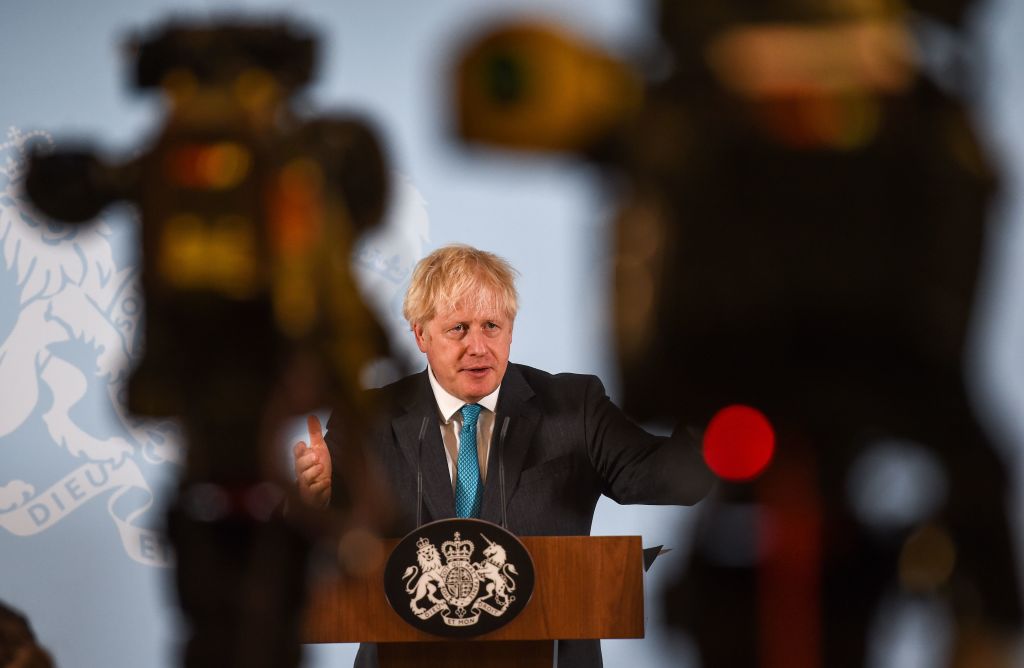Keir Starmer’s achievement is remarkable: ten months after Boris Johnson’s resounding victory, he has transformed Labour from no-hopers into a force that is terrifying the Tories. As the Conservative tribe prepares to gather for its virtual party conference, the obvious question is whether defeat at the next election is a realistic prospect. The answer, unlike in January 2020 must be: yes. Its likelihood, however, is a different matter.
A wise Tory strategist would be looking at the contrasting elections of 1992 and 1997 and taking note. At the same time, they should heed an important addendum to Denis Healey’s well known First Law of Holes (‘If in a hole stop digging’) that voters pay attention not only to whose fault it is that the country is in a hole, but which party they perceive to be best suited for getting the country out.
At the 1992 election, voters blamed the Conservatives for more than just assorted policy ills. While the poll tax fiasco remains in folk memory, it is often forgotten how deep and widespread was voter antagonism to the harshness of Conservative economic stewardship. The UK suffered a substantial recession during 1991 and many voters suffered. Yet despite that, the Conservatives still won the 1992 election. Why? Because even though voters blamed them for getting them in a hole, voters trusted them more than Labour to offer a ladder to get them out of the hole.
The 1997 election was different. After Black Wednesday, a critical mass of swing voters decided that the Tories had failed and that Tony Blair was the more competent choice. Starmer is clearly looking to pull off the same feat. The electoral mountain will be harder for Labour to surmount after 2019 than after the 1992 election. But if politics is the art of the possible, Harold Wilson’s achievement in transforming a Conservative majority of 100 seats at the 1959 election to a (small) Labour majority at the election of 1964 suggests that if Starmer is sufficiently artful, victory is possible.
The next election needs to be held by 2024. Given the scale of impact that it has had on us all, that election is likely to be dominated by the government’s success or failure in dealing with Covid and the resulting fallout.
Day-to-day competence and Labour’s relative appeal will help shape the next election. But the bigger question, foremost in the thinking of Conservative electoral strategists, will be whether, despite all the mistakes and misjudgements, the electorate are in a forgiving mood.
If they are, another 1992 is possible. But some Conservatives may be hoping for something more in 2024: a repeat of 1983.
Margaret Thatcher’s victory at the 1983 election came after her government had plumbed depths of unpopularity previously known only to Jules Verne. The scars of recession were etched across the everyday lives of most voters. And the outbreak of the Falklands War at first threatened to derail her government even further, as the role of unforced errors by her government in encouraging the Argentine Junta to gamble and succeed on invasion became clear. To take one example, the decision by her government to withdraw HMS Endurance from the Falklands ‘may have served to cast doubt on British commitment to the Islands and their defence’, as the Franks report later characterised it.
But while, at first, her government was blamed for decisions that helped the invasion to occur in the first place, its success in the face of doubters in ultimately defeating the invasion secured voter acclaim that eclipsed what had come before. Yes, there were other factors at play in helping secure the 1983 Conservative landslide, including Labour’s inept campaign, Michael Foot’s inadequate leadership, and the unpopularity of key manifesto policies, including its proposals for a non-nuclear defence policy. But the ‘Falklands effect’ on polls was real nevertheless.
The biggest political question for Team Boris will be whether a successful UK vaccination programme will have such a ‘Falklands effect’. Will a successful UK vaccine precipitate mass forgiveness of the Conservative party by voters who feel they have suffered unnecessarily under Covid? Will they reward the Tories politically for far sighted investment in vaccinations, which enable normal life to restart?
Starmer is no Michael Foot, and Labour is likely to be a far more effectively run and voter-friendly party than in 1983 or for that matter in 2019. But a successful vaccine could completely change the political dynamic. Tory strategists will be hoping for just such a miracle.
Greg Rosen is the author of three books on 20th century British political history, including the Dictionary of Labour biography






Comments